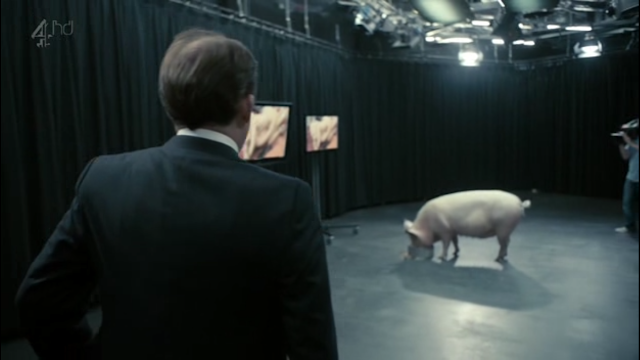
Sharp Objects
Author: Gillian Flynn
Published: 2006
Genre: Psychological thriller, mystery, Southern Gothic
Note: This is a review for Gillian Flynn's 2006 novel, not the recently-released miniseries adaptation on HBO.
Despite my avid fondness for storytelling, for five years I never picked up a novel and read it simply because I wanted to. Not because it was assigned to me for school, or recommended to me by someone else, but just to see for myself how the story ends. That changed when I read Gillian Flynn’s riveting debut Sharp Objects last week. It took me one day.
For some context: I only decided to read Sharp Objects because of HBO's new miniseries adaptation starring Amy Adams. The show is absolutely excellent,
but my impatience with its slow-burn pace (and my ever-present fear of Internet
spoilers) meant I was quite desperate to know what happens next. Lucky for me,
the show is a very faithful adaptation of its source material, given that Flynn
is involved as both a producer and a writer. Two episodes is all it took for me
to take up the book.
 |
| Poster for HBO's miniseries adaptation, starring Amy Adams and Patricia Clarkson. |
Yes, Sharp Objects
is a short read, coming at just over 250 pages, but it was rendered even
shorter by my utter inability to stop reading till I was finished. It’s dark,
morbid, vividly written and deeply suspenseful. It’s also unafraid to tackle
some difficult and provocative subject matter, including self-harm, alcoholism and
parental neglect. It’s often hard to read, but much harder to put down.
Sharp Objects
follows Camille Preaker, a Chicago-based reporter who is sent back to her fictional
hometown of Wind Gap, Missouri, to cover the murders of two young girls. Wind Gap is
a small and insular community teeming with gossip and secrets around every corner,
which means word gets out fast anytime something is awry. The murders instill
fear and suspicion among the town’s residents, all of whom seem like they have
something to hide. It gives Camille plenty of investigative bone to chew on as
she reacquaints herself with Wind Gap’s history.
The most challenging history Camille has to grapple with,
however, is her own, as she goes to stay with her overbearing mother in their
eerie, Gothic family household. This introduces a recurring theme throughout a
book: an attraction to darkness. Camille, we learn, is both an alcoholic and a
self-harmer, having carved words all over her body, each with its own meaning
and salience to Camille’s tortured past and psyche. Much of this psyche was forged
over the course of her upbringing in Wind Gap, which included the death of her
half-sister Marian when the two were children, and the subsequent breakdown of
her relationship with her mother. In returning home upon a tragedy befalling innocent children, Camille is slowly drawn back into the dark void in which she first lost her own innocence.
What’s interesting, though, is that Camille is not just a
walking repository of gloom and despair. In fact, she’s quite the opposite: she
describes her experiences in Wind Gap with the keenly observant eye of a
reporter and the blithe and sardonic wit of someone already familiar with the town's idiosyncracies. Since the entirety of the
novel is told from Camille’s perspective, her voice adds color and character to
the story’s events that a less nuanced protagonist would be unable to achieve.
Camille is not an “unreliable” narrator in the vein of Flynn’s other hit novel,
Gone Girl, but the juxtaposition of
her dry and “journalistic” tone with the dark and twisted nature of the events provides
the novel and its heavy subject matter with an uncanny accessibility. You
yourself become drawn to its darkness with an almost morbid curiosity, much like
Camille. You learn to empathize with her pain rather than be put off by it.
Much of this owes to Flynn’s brilliant writing style, which manages
to be vividly descriptive yet natural enough to feel intimate – human. Once again,
Camille’s characterization works to Flynn’s advantage: she can imbue her
descriptions with a degree of detail and pathos that feels entirely appropriate
to her protagonist, and thereby flesh out the novel’s Southern Gothic world in
an organic way. And though we the reader become attracted to the darkness of said
world, we are never desensitized to it. That vague yet piercing feeling that something
is very, very wrong in Wind Gap lingers throughout the novel and offsets even
its quieter moments with a constant feeling of dread. This book is still a
thriller at heart, and when it amps up the tension (particularly in the third
act), it becomes downright harrowing.
Of course, with a great setting comes great characters, and
Flynn enlivens her story with a rich supporting cast that is just as
well-realized as her protagonist. Camille’s aforementioned mother Adora, while
thoroughly odious due to her emotionally abusive behavior, remains an enigmatic
presence throughout the novel. This is mainly because she is an especially
well-connected resident of Wind Gap, using her family wealth and social
influence to maintain a pristine “old money” exterior among the other townsfolk.
But the character that leads a true double-life is Camille’s teenage half-sister
Amma, who Camille meets for the first time upon her return to Wind Gap. Amma is
her mother’s personal doll at home and a rebellious troublemaker by night, and her
bond with Camille over their mutual yearning for escape introduces a
fascinating dynamic between them that evolves in unexpected ways over the course of the
story. Furthermore, Camille’s news story puts her at odds with both the town’s
disgruntled sheriff and a detective coming from Kansas City to investigate the
murders. Her interactions with these characters as well as various town locals
and families provides for some trenchant commentary on themes like gender,
class, grief and adolescence, and offer the welcome contrast of seeing how the murders affect "ordinary" people.
What I found most impressive about Sharp Objects was the strikingly efficient pace at which it
advances its story. The narrative could have been stretched to twice its length and
dragged on with extraneous detail and unnecessary subplots, but Flynn eschews
such distractions and keeps the focus tightly trained on Camille and Wind Gap, resulting
in a story that’s relatively simple in the way of plot but endlessly absorbing
in its exploration of characters. Indeed, character development is the main
thrust of the book’s mystery, and Flynn is able to sustain reader intrigue
into Wind Gap's various secrets without sacrificing realism or logic in the
process. The book is also respectful yet inventive in addressing the topic of self-harm, and
the effectiveness with which it incorporates the subject into its story
indicates that neither Camille nor Flynn care whether the reader is judging. It’s
a heavy topic, yes, but the book is more than strong enough to carry that
weight with grace and confidence.
--
I absolutely recommend Sharp
Objects to anyone who enjoys a good murder mystery, or simply wants to
liven up their summer evening. I suppose a “trigger warning” is in order for
anyone who finds mental illness or self-harm to be too sensitive a subject, as
it’s something I see frequently expressed on the Reddit community for the miniseries.
As for the TV adaptation, I also strongly recommend seeing it – everything
about it is flawlessly executed, from the acting and music choices to the surreal,
dreamlike quality evoked by its unique editing style. It also makes the smart
choice of presenting events from other perspectives rather than only that of
Camille, which adds further intrigue and complexity to the world of Wind Gap.
As for the question of which one to try first, I can only
speak from experience and say I watched two episodes of the series before
starting the novel. This has worked well for me, since the early (slower)
chapters of the novel are made more entertaining with the imagery of
the series’ actors and settings in mind. Finishing the novel has also made the rest of
the series more fun to watch, as I have the added excitement of seeing the
novel’s pages come to life onscreen. Knowing how the story ends does not
detract from the experience at all, since there’s still an element of surprise
to how exactly the series adapts the book to its format with each episode. There
are also a few new characters and subplots introduced to the series that aren’t
in the book, and though I don’t expect these elements to alter the general course
of the plot very drastically, they still add new dimensions to the story while
maintaining the authentic tone struck by the novel.
Hope you guys enjoy Sharp
Objects! Thanks for reading!




